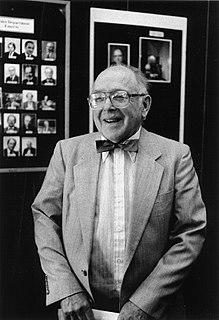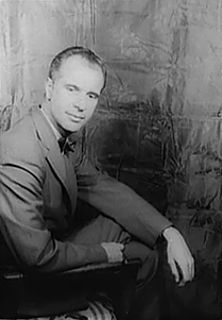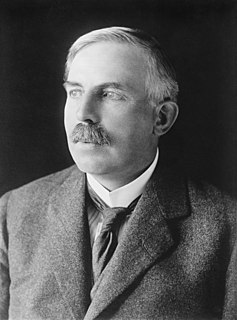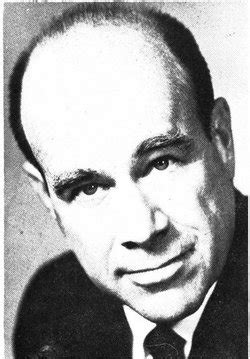A Quote by Clifford Shull
Over the last century, physicists have used light quanta electrons, alpha particles, X-rays, gamma-rays, protons, neutrons and exotic sub-nuclear particles for this purpose. Much important information about the target atoms or nuclei or their assemblage has been obtained in this way. In witness of this importance one can point to the unusual concentration of scattering enthusiasts among earlier Nobel Laureate physicists. One could say that physicists just love to perform or interpret scattering experiments.
Quote Topics
About
Alpha
Among
Assemblage
Atoms
Been
Century
Concentration
Could
Earlier
Electrons
Exotic
Experiments
Gamma
His Way
Importance
Important
Information
Interpret
Just
Last
Laureate
Light
Love
Much
Neutrons
Nobel
Nuclear
Obtained
Over
Particles
Perform
Point
Purpose
Rays
Say
Target
Unusual
Used
Way
Witness
Related Quotes
Physicists only talk to physicists, economists to economists-worse still, nuclear physicists only talk to nuclear physicists and econometricians to econometricians. One wonders sometimes if science will not grind to a stop in an assemblage of walled-in hermits, each mumbling to himself words in a private language that only he can understand.
In the eighteenth century it was often convenient to regard man as a clockwork automaton. In the nineteenth century, with Newtonian physics pretty well assimilated and a lot of work in thermodynamics going on, man was looked on as a heat engine, about 40 per cent efficient. Now in the twentieth century, with nuclear and subatomic physics a going thing, man had become something which absorbs X-rays, gamma rays and neutrons.
Mathematics is not only real, but it is the only reality. That is that entire universe is made of matter, obviously. And matter is made of particles. It's made of electrons and neutrons and protons. So the entire universe is made out of particles. Now what are the particles made out of They're not made out of anything. The only thing you can say about the reality of an electron is to cite its mathematical properties. So there's a sense in which matter has completely dissolved and what is left is just a mathematical structure.
Chemists are, on the whole, like physicists, only 'less so'.They don't make quite the same wonderful mistakes, and much what they do is an art, related to cooking, instead of a true science. They have their moments, and their sources of legitimate pride. They don't split atoms, as the physicists do. They join them together, and a very praiseworthy activity that is.
If you look at the last 150 years, about every 30 years or so, a new scientific discipline emerges that starts spinning out technologies and capturing people's imaginations. Go back to 1900: That industry was chemistry. People had chemistry sets. In the 1930s, it was the rise of physics and physicists. They build on each other. Chemists laid the experimental understanding for the physicists to build their theories. It was three physicists who invented the transistor in 1947. That started the information revolution. Today, kids get computers.
From the results so far obtained it is difficult to avoid the conclusion that the long-range atoms arising from collision of alpha particles with nitrogen are not nitrogen atoms but probably atoms of hydrogen, or atoms of mass 2. If this be the case, we must conclude that the nitrogen atom is disintegrated under the intense forces developed in a close collision with a swift alpha particle, and that the hydrogen atom which is liberated formed a constituent part of the nitrogen nucleus.
We know little of the consequences of the geoengineering process, such as spraying particles into the atmosphere that shade the planet from the sun's rays and could decrease its temperature. But this process is how dinosaurs disappeared from the Earth about 60 million years ago, by particles spewed by a volcano or a giant meteorite impact, and our species could follow suit.
It is quite true that many scientists, many physicists, maintain that the physical constants, the half dozen or so numbers that physicists have to simply assume in order to derive the rest of their understanding ... have to be assumed. You can't provide a rationale for why those numbers are there. Physicists have calculated that if any of these numbers was a little bit different, the universe as we know it wouldn't exist.
If physicists could not quote in the text, they would not feel that much was lost with respect to advancement of knowledge of the natural world. If historians could not quote, they would deem it a disastrous impediment to the communication of knowledge about the past. A luxury for physicists, quotation is a necessity for historians, indispensable to historiography.



































